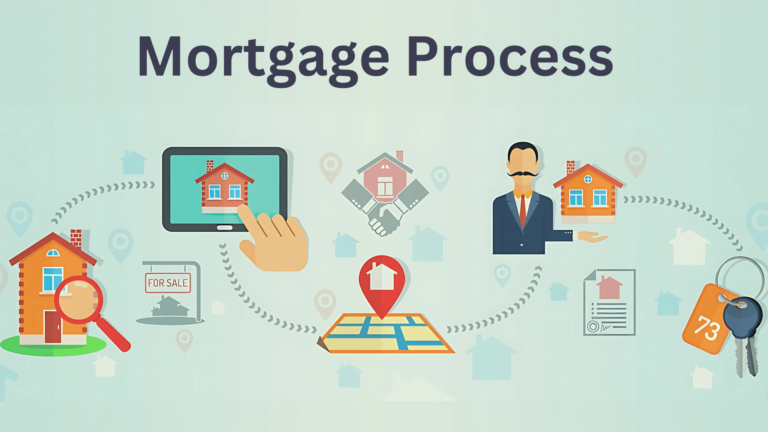Let’s talk credit scores and your mortgage insurance costs—because there’s a wild connection most people ignore until it smacks them in the wallet. I keep getting asked stuff like, “Why am I paying more for mortgage insurance than my buddy who bought a similar house?” Or, “I got a decent rate on my mortgage, but why is my insurance through the roof?” It all comes down to your credit score. That little three-digit number isn’t just about credit cards or loan approvals. It straight-up messes with your mortgage insurance costs. If your credit score is wobbling on the lower end, you’re paying more.
Sometimes a lot more. Let’s break this thing down.
Table of Contents
ToggleWhat’s Mortgage Insurance, and Why Are You Paying It?
Before we talk credit score and mortgage insurance costs, you gotta understand what mortgage insurance even is.
Here’s the short version:
- PMI (Private Mortgage Insurance) kicks in when you put down less than 20% on a conventional loan.
- FHA mortgage insurance is required on all FHA loans, no matter your down payment.
- It protects the lender, not you. If you skip out on the loan, the insurance company pays the lender.
Sounds unfair? Kind of. But it’s the cost of getting into a property without 20% down.
Now, the Big Question: How Does Your Credit Score Impact Mortgage Insurance Costs?
Straight up—your credit score is one of the key factors that determines your mortgage insurance cost. Let’s say you and a friend both put 10% down on $300k homes—no difference in location or loan type. You’ve got a 760 credit score. Your friend’s sitting at 630. The difference in PMI payments? Easily $100 or more monthly. That’s more than a cell phone bill. So why the penalty? Because lower credit scores = more risk = higher insurance costs.
What’s Considered a “Good” Credit Score for Mortgage Insurance?
Here’s the ballpark most lenders follow when they compare credit scores:
| Credit Score Range | Impact on Mortgage Insurance Cost |
|---|---|
| 760+ | Lowest PMI costs available |
| 700–759 | Still good, slightly higher PMI |
| 660–699 | Moderate rates—starting to climb |
| 620–659 | High PMI rates |
| Below 620 | You’re getting hammered with cost increases or might not qualify |
Why Lenders Care So Much About Credit Scores
Lenders aren’t emotional. They rely on data. And the data says: lower credit scores = people more likely to default. So PMI companies, in turn, offset their risk by jacking up mortgage insurance costs if your score is lower. It’s got nothing to do with fairness. It’s math to them.
Real Numbers: How Much Does a Lower Score Affect Monthly Costs?
Let me give you the facts in numbers.
If you’re putting 5% down on a $350,000 house:
- With a 760+ score, your PMI might be around $125/month
- With a 640 score, that same PMI could spike to $300+/month
That’s $2,100 MORE per year. For the exact same house. Which honestly sucks—but completely avoidable if you level up your credit before house hunting.
How to Improve Your Credit Score To Cut Mortgage Insurance Costs
Alright—so let’s say your credit’s not where it needs to be. You’re tired of giving lenders more money than you should.
Here’s how to turn that around:
- Pay Bills On Time: Boring advice, but it still works better than anything else.
- Drop Your Credit Utilization: Use less than 30% of your credit card limits. Ideal is closer to 10%.
- Dispute Errors: You’d be shocked how many reports have wrong info dragging you down. Clean that up.
- Don’t Open New Accounts Suddenly: That can ding your score and lower your average account age.
- Ask for Credit Limit Increases: It lowers your utilization automatically without you spending more.
FHA Mortgage Insurance: Still Affected By Credit Score?
FHA loans feel like they skirt around credit issues, but PMI costs still matter.
Your mortgage insurance cost is baked into the loan with something called MIP (Mortgage Insurance Premium). Now FHA MIP has less variation than conventional PMI, but your credit score still counts. Especially if you make a small down payment (3.5%).
Bottom line: you still want a higher credit score, whether it’s conventional or FHA.
Other Sneaky Factors That Impact Mortgage Insurance
- Loan-to-Value Ratio (LTV): Bigger down payments shrink your PMI.
- Loan Size: Jumbo loans or high-balance loans trigger higher premiums.
- Loan Term: 30-year loans cost more in monthly PMI than 15-year ones.
- Occupancy Type: Primary residence vs investment property—yep, that changes rates too.
But credit score is still the one piece you have the most control over starting today.
Want Lower Mortgage Insurance Costs? Start With Credit
Don’t skip this part:
Your mortgage insurance cost is often something you can influence before you even apply for a loan.
So even if you’re a year out from buying, use this time to push your score higher.
It’s straight-up one of the smartest moves to make your future payments lower.
And if you’re wondering about how this all fits into the bigger stuff around buying real estate, I wrote more on it right here.
FAQs
How does a credit score affect mortgage insurance costs?
A lower score tells lenders you’re a high-risk borrower.
That means higher PMI rates—sometimes hundreds more per month.
Can I get rid of PMI later?
Yes. Once you hit 20% equity in your home, you can usually remove PMI.
Just make sure you’re tracking your equity and watching your credit.
Is FHA mortgage insurance better if I have a low credit score?
Sometimes. FHA loans have lower credit score requirements, but the MIP is required for the life of the loan unless you put down 10%+.
What’s the minimum credit score to avoid PMI?
No credit score will automatically avoid PMI it comes down to the size of your down payment. But the higher your score, the lower your PMI cost.
